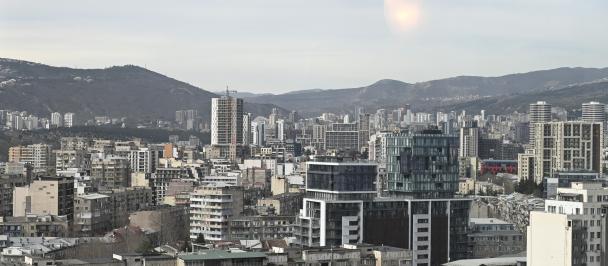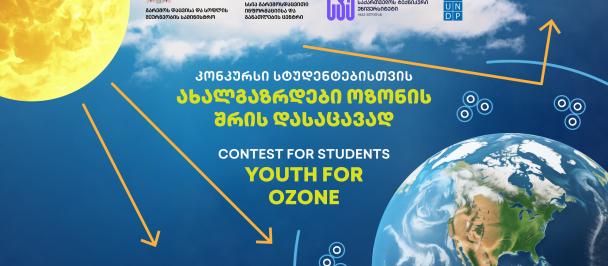UNDP and the Environmental Information and Education Centre help protect the school environment from climate-driven disasters
Georgian schools join national efforts to reduce climate threats
April 21, 2021
Photo: Mamuka Chkhikvadze/UNDP
The ‘Safe Learning Environment’ contest for schools drew participants from more than 40 public schools across 10 Georgian municipalities. The contest’s goals included climate-proofing schools and educating students and communities about climate-induced disasters. Organized by UNDP in partnership with Georgia’s Ministry of Environmental Protection and Agriculture (MEPA), the contest covered the Abasha, Akhmeta, Gori, Khobi, Kobuleti, Lagodekhi, Samtredia, Senaki, Sighnaghi and Telavi municipalities.
The top five projects received small but essential funding from UNDP and MEPA that will be used to implement the following activities:
- A public school in the Heretiskari village in the Lagodekhi municipality will establish a weather lab that will provide practical meteorological training to students and regular weather forecasts to the community;
- A school in the Khala village in the Kobuleti municipality will plant windbreaks and reinforce riverbank stability to increase the climate resilience of its premises;
- A public school in Telavi will install a winter belt on its roof and engage school children in climate blogging and a photo contest;
- A school in the Atskuri village of the Akhmeta municipality will make the drainage canals to protect its premises from flooding; and
- A public school in Gori will plant trees and organise a conference on climate change.
“Climate education starts in schools where young people learn to understand the causes and consequences of climate change and take actions to adopt more sustainable lifestyles,” said Deputy Minister of Environmental Protection and Agriculture Nino Tandilashvili. “Georgian Government places a great priority on climate education as part of the national effort to adapt to climate change and reduce its negative impacts on people and the economy.”
“Georgia is experiencing climate change first-hand, but people tend to assume that someone else is responsible for protecting them from climate-induced disasters,” said UNDP Resident Representative a.i. Anna Chernyshova. “Our support helps youth and communities to take climate action and contribute to building a climate-proof society.”
In Georgia, climate change is increasingly recognized as a direct and immediate threat to people’s lives and livelihoods. According to recent research commissioned by UNDP and the European Union, Georgians see climate change as one of the top three challenges that humanity faces (along with poverty and infectious diseases). Almost 94 percent of the population recognize that climate change is affecting Georgia, not just remote countries. Nevertheless, the same research shows that only a small percentage of the public translates this impressive awareness into climate-friendly behaviours or actions.
As a strong supporter of Georgia’s national climate action, UNDP assists the country in adopting climate-friendly policies, introducing sustainable practices and protecting people from climate-induced disasters.
UNDP assistance comes from the $74 million programme implemented by UNDP and MEPA with funding from the Green Climate Fund, the Government of Georgia and the Swedish and Swiss development agencies. This seven-year programme will reduce the risk of floods and other climate-driven disasters in all 11 of Georgia’s major river basins, provide direct protection to more than 1.7 million people and will assist the country in building a climate-proof future.
Media contacts
- Sophie Tchitchinadze, UNDP, +995 599 196907, sophie.tchitchinadze@undp.org
- Ira Sulava, UNDP, +995 599 579105, irine.sulava@undp.org
- Nana Chinchilakashvili, MEPA, +995 599 502619, nana.chinchilakashvili@mepa.gov.ge

 Locations
Locations



